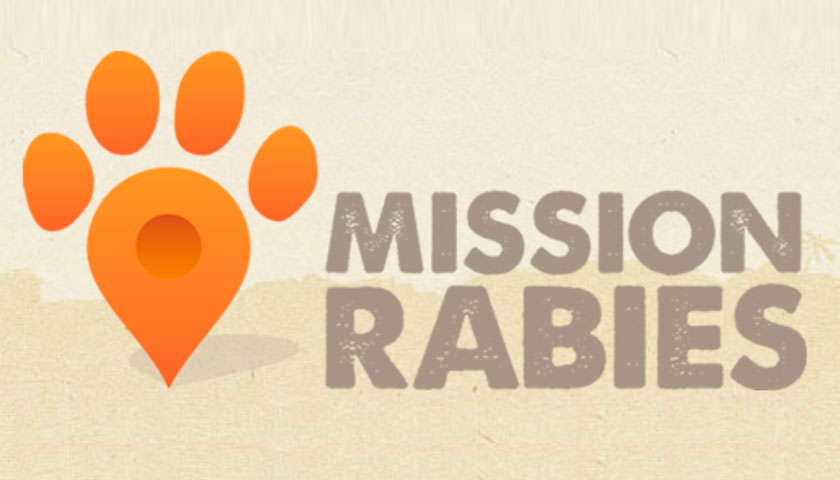Whilst the world continues its battle against COVID-19, a state in India has taken a giant step forward in eliminating one of the world’s oldest known, deadliest diseases – rabies, which still kills a child every nine minutes.
A third of all deaths occur in India and there are 4.5 million exposures every year. The disease takes a huge toll on the country, but today the state of Goa has been declared a Rabies Controlled Area – becoming the first State in India’s history to achieve this. The announcement from the Government of Goa comes after zero human rabies deaths have been reported across the state since 2018. The achievement is the result of an eight-year partnership with a Dorset-based veterinary charity, Mission Rabies.
Mission Rabies has been working with the Government of Goa to control this deadly disease since 2013. Mission Rabies established its programme in India to demonstrate how new methods of rabies prevention could save lives. The charity developed a model based on dog vaccination and education that could save 60,000 lives every year across the world. Over 99% of human rabies cases are caused by an infected dog bite so the vaccination of dogs is the most effective way to stop its spread amongst dogs and people. The campaign began with vaccinating 61,143 dogs against rabies in just 30 days. At this time, the charity’s surveillance teams were picking up approximately 1 rabid dog every 3 days in Goa. Through mass-scale vaccination of owned and stray dogs, that number has now been reduced to 1 rabid dog being detected every other month, with most of those animals having arrived in Goa from other states.
The campaign in Goa now vaccinates around 90,000 dogs every year and does not only benefit the people living there. Dogs in rabies hotspots are often feared as carriers of this deadly disease, which can lead to mistreatment and inhumane culls, but through effective vaccination campaigns these dogs are not only protected against disease, they are no longer seen as a threat, allowing people and dogs to live happily side by side.
Dr Luke Gamble, CEO and Founder of Mission Rabies, and a UK Veterinarian, explains the work that has taken place for Goa to become a Rabies Controlled Area.
“We’ve now delivered 540,593 vaccinations against rabies in dogs and educated nearly one million people in dog bite prevention across Goa, as well as set up 24-hour rabies surveillance, involving an emergency hotline, rapid response team, and a support team for dog bite victims. All of this led to Goa becoming the first state in India to stop all human deaths from rabies in 2018. An incredible achievement we’ve been able to support thanks to the leadership and strategic direction of the Government. It is fantastic that we’ve now hit the next milestone in terms of controlling the disease in animal populations.”
State-wide rabies control has been the result of a global collaborative effort. Animal welfare charity Dogs Trust Worldwide, global health care company MSD Animal Health, and the University of Edinburgh have contributed massively to the achievement through funding campaigns, donating canine vaccines, and conducting research based on real-time data collected on the ground to guide the work in Goa.
Dr Marwin Lopes, Deputy Director and Nodal Officer for Rabies Control from Government of Goa praises the impact rabies control has made across the state, especially with respect to tourism, the economy, and the safety of people.
“Now after years of work we are able to say that Goa is the first Rabies Controlled Area, and we hope other states will follow our example and work to achieve this too.”
The declaration is a significant breakthrough in the fight against rabies in India as it provides the state government with the authority to enforce dog vaccination and reporting of suspect cases. Dr Murugan Appupillai, Director of Education at Mission Rabies explains.
“Stringent measures, which have never been implemented in India before, will be now put in place to stop rabies re-emerging. Government officials will have authority to prevent unvaccinated animals entering the state via road, ship, air, or train, and even question the status of animals within it. Rabies vaccines will also be available – equally accessible and affordable – for all pet owners.”
Mission Rabies runs projects around the world from the small village of Cranborne in Dorset, including Malawi, India, Sri Lanka, Uganda, Tanzania, Cambodia, and Thailand.
